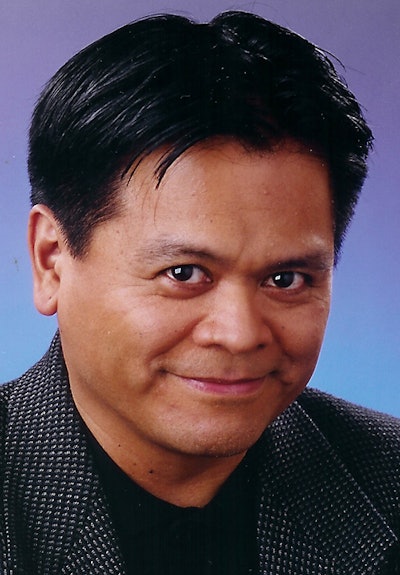Kentucky got beat by Alabama pretty bad last Saturday in football.
But I’m sure my friend Ted Schatzki, a professor of Geography, and of Philosophy and Sociology, and the former senior associate dean in the College of Arts and Sciences at the University of Kentucky is more concerned if his school will get badly beaten-up by the coronavirus over the next few months.
Students at UK began clearing out last weekend from university housing to begin their journey home. They’re expected to stay there after the holiday, take exams online, and then return at the end of January.
But will they return to campus? Will it be safe enough?
“That’s a question mark now because the rise is so exponential in coronavirus cases that it’s hard to know what the story is going to be a week from now,” Schatzki told me.
He said that from an epidemiological point of view, it makes it hard to know what should happen, if the situation doesn’t improve.
 Emil Guillermo
Emil Guillermo“You have all these people moving from one location to another, you don’t just want to bring them back again,” he said, at least not without adequate testing.
And that remains the issue, along with a much stricter sense of personal responsibility as a matter of public health.
“Universities are offloading whatever issues they have to the families of students,” Schatzki said. “Most universities are not testing. UK said to students, you can get tested if you want, but it could have required it.”
It makes the near future really a lot more up in the air than many higher ed officials care to admit publicly.
“Anybody who thinks they know what’s going to happen is crazy,” Schatzki said. “We don’t know if all the students are going to come back, they got pretty sick of their education.”
Schatzki said he noticed students are desperate for on-line learning to end.
“Being fatigued of having your classes on Zoom is a healthy reaction,” he said. “And it’s good for higher education that students are having this reaction. They’re realizing that in-person teaching, that old model that has been around for millennia is really the best one.”
Now only if the model can be followed safely for students and teachers during the ongoing pandemic.
MY TED TALKS
Schatzki and I were undergraduate pals who often talked over pizza and beer. I provided the diversity in our circles in those days. He continued in academia at Oxford and Berkeley. Me? I got out and declared my freedom.
Before the virus hit last March, I hadn’t talked to Ted in more than 40 years. I called him out of the blue. Something about the uncertainty in life made me think back to my past at the beginning of our higher ed journey, my freshman and sophomore year gabfests with Ted. Since that initial Zoom call, we’ve had regular conversations, what I call our “Ted Talks.”
When we started it all, we never thought the pandemic would last till November.
How should people approach the holiday given the pandemic? Masks? Large gatherings? Or stay put and enjoy a holiday in joyful, healthful isolation?
I asked my philosopher friend. He went straight to people’s mindset.
“There is part of the country I live in where people believe if you get sick, then God has picked your time,” Schatzki said. “So for people like that , you can live as if there’s no virus because if you got it, it means God has chosen you. So it’s a way of erasing responsibility for the effects of one’s actions.”
He called that thinking an example of “bad faith.”
“It’s not a new idea,” Schatzki said. “It’s been around a long time. And it is part of a belief system that is very sustaining. For people whose lives aren’t so great, this can bring some relief…One can argue this is not the worst thing in the world. The problem is if you become a vector for the disease, you’re endangering others as well. That’s where the thinking falls short.”
No telling what God may do, but why not choose yourself instead—to act more responsibly. Don’t risk being asymptomatic and spreading the disease. Wear a mask. Keep distance. Avoid large gatherings.
Schatzki is even more optimistic about the holiday as people see more hospitals overrun by the virus. That, he says will have an impact.
“I think seeing death changes people’s behavior,” Schatzki said. “When death is a public occurrence, then I think people become more cautious. I think we are at that point now.”
So keep distance, gather ‘round small. Try the vegan dish.
If we all celebrate this Thanksgiving with caution for the present and great hope for the future, there’ll be plenty for which to be thankful.
Maybe even a Spring term on campus.
Emil Guillermo is a journalist and commentator. He writes for the Asian American Legal Defense and Education Fund blog. You can follow him on Twitter @emilamok






















